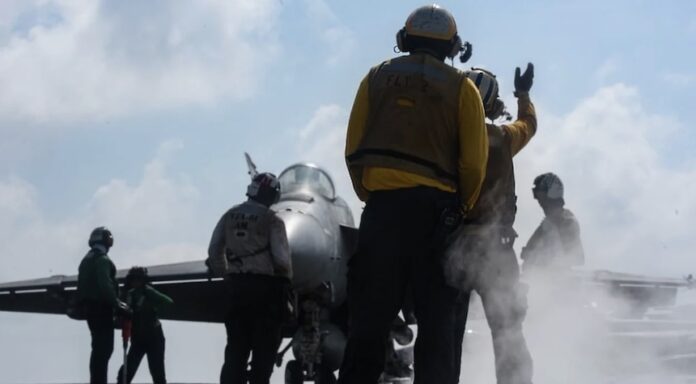Recent Pentagon studies have shown that military pilots and ground crew members who fuel, maintain and launch aircraft are more likely to develop cancer.
The Pentagon released a year-long study in February that examined the cancer rates of 900,000 military personnel who worked or piloted aircraft between 1992 and 2017.
According to the Associated Press, the study was initiated after concerns were raised by former military aviators, who observed that a large number of ground and aircrew members had contracted cancer. This is contrary to previous studies which found that service personnel is not at greater risk than the general public.
The 2021 defense bill required that the Pentagon conduct a thorough study.
A shocking Pentagon study has revealed that aircrew members have an 87% higher rate of melanoma, and 39% more thyroid cancer. The study also showed that women had 16% more breast cancer than men and that men had 16% more prostate cancer.
The study found that ground crew members had a 19% higher risk of developing brain or nervous system cancers, a 15% greater rate of thyroid cancer, and a 9% lower rate of kidney and renal cancers. The study also revealed that breast cancer rates were higher in women at 7%.
According to the study, 24% of all cancers were found in aircrew personnel, while 3% were found in ground crew.
The Pentagon reported that ground and air crews had lower rates of lung cancer. Additionally, the rates of colon and bladder cancers among aircrew members were lower than those in the ground crew.
The Pentagon acknowledged that there were likely more cancer cases than the general population, even though the data was compared to the general population. However, it noted that gaps in the data could have led to a higher number of cases. The study also did not include ex-combatants who became cancerous after leaving the military medical system.
The study’s findings have led the Pentagon to conduct an extensive review of possible causes for the higher rates of cancer. The defense bill 2021 requires that the department identify the “carcinogenic toxicants and hazardous materials associated with military flight operations”, as well as the types of aircraft and locations in which crew members were diagnosed.
Crew members of aviation speculate that higher cancer rates could have been caused by increased exposure to jet fuels, jet cleaning chemicals, sensors, power sources, and radar systems.
The Pentagon stated that the study does not prove that military service in ground crew or air crew occupations causes cancer. There are many possible confounding factors that cannot be controlled for in this analysis. They cited family medical histories, smoking, and alcohol consumption.




